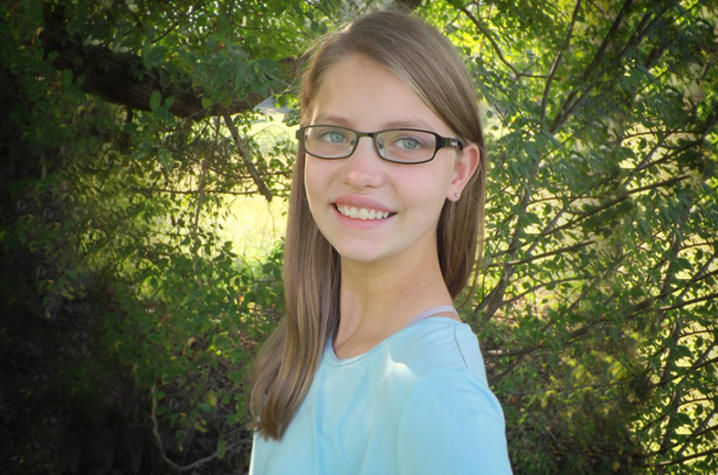KNOW: Doctors feared 'She may not make it through the night' but she proved them wrong
Though she be but little, she is fierce. From the moment she was born, Audrey Armstrong defied every expectation.
Born in Morehead, Kentucky, at 41 and a half weeks, Audrey immediately began having difficulties with bowel movements. Her parents brought her to the NICU at Kentucky Children's Hospital (KCH) where she was diagnosed with Hirschsprung's disease, a congenital condition characterized by missing nerves in the colon. After a brief stay, during which her parents were educated on how to care for a baby with Hirschsprung's, Audrey was sent home.
"Hirschsprung disease (HD) is a developmental disorder of the nerves located in the wall of the intestine," said Dr. John Draus, division chief of pediatric surgery ay KCH. "In HD, there are no nerve cells in the wall of the affected intestine. Without nerve cells, the intestine does not move things through, and the affected area acts like a blockage. The baby can have a swollen belly, vomiting and inability to pass stools on their own. Rarely, the bowel can become so distended that it perforates. That is what happened to Audrey when she was a baby."
In the weeks that followed, Audrey's eating slowed and she stopped gaining weight. They returned to KCH where x-rays revealed an obstruction in her bowel. At only one month old, Audrey received the first of what would ultimately be seven surgeries.
Following the surgery, Audrey became very ill; she had a perforated bowel and needed emergency surgery.
"We were told she probably won't make it through surgery, and if she did, she might not make it through the night," said Audrey's mother Morgan. Audrey's surgeon advised them to prepare for the worst.
Audrey proved them wrong.
But infections continued to spread through her body. Audrey was on an ventilator and weighed less than her birth weight of seven pounds. Her surgical team couldn't risk transporting Audrey from the Pediatric Intensive Care Unit (PICU) to the operating room. Instead, they brought the operating room to Audrey. Doctors and nurses filled the small room. The anesthesiologist asked if he could pray with Audrey's parents.The PICU was shut down so Audrey's surgery could begin.
After a few hours, Audrey's parents were allowed to return to her room. What they saw shocked them.
"The results were that her intestines were exposed and secured in a surgically placed bag that was suspended over her body," said Morgan. "It was a gruesome sight, but it meant she was alive. Life was measured one hour at a time."
What followed were seemingly endless rounds of infections, antibiotics and swelling. Accumulating fluid caused her body to more than double in size, to the point where her skin broke open. Two more surgeries took place in her tiny PICU room, followed by more infection. Portions of her large intestine were removed. At one point, she had more than 10 IV pumps attached to her tiny body. But slowly, Audrey responded to the treatments and grew stronger.
"Life began being lived one day at a time," said Morgan.
Surgery number six was meant to be a five-hour procedure to close her abdomen up for good with a colostomy to divert the colon to an opening in the abdomen. What happened instead was a 10-hour surgery during which all of the remaining large intestine was removed and one lung partially collapsed.
"Audrey’s case was particularly complicated," said Dr. Draus. "She required seven operations and multiple hospitalizations. She was critically ill and almost died of sepsis. There were numerous KCH surgeons, physicians, nurses and other health care workers who participated in her care. It was a great team effort. We are thrilled that Audrey is doing so well at this time."
But the complications were no match for Audrey's indomitable spirit. An ileostomy replaced the plan for a colostomy; her small intestine, rather than her colon, was rerouted to her abdomen. Respiratory therapy restored lung function. One final surgery at the age of nine months to reverse the ileostomy, followed by a handful of hospital stays for dehydration and infection - common for patients with compromised digestive systems - and Audrey was on the road to recovery.
Today, Audrey is a bright and bubbly middle schooler with a passion for gymnastics and working with children. She has to maintain a strict diet, and is curious about the trials she faced as a baby. Audrey loves spending time with her friends and volunteering in her church's youth ministry. Looking toward the future, Audrey wants more than anything to be a mother. And maybe a nurse.
"She will no doubt change this world for the better," said Morgan. "Her start to life was a struggle, though, and the challenges she has faced have shaped her into the lovely young woman we know today."
